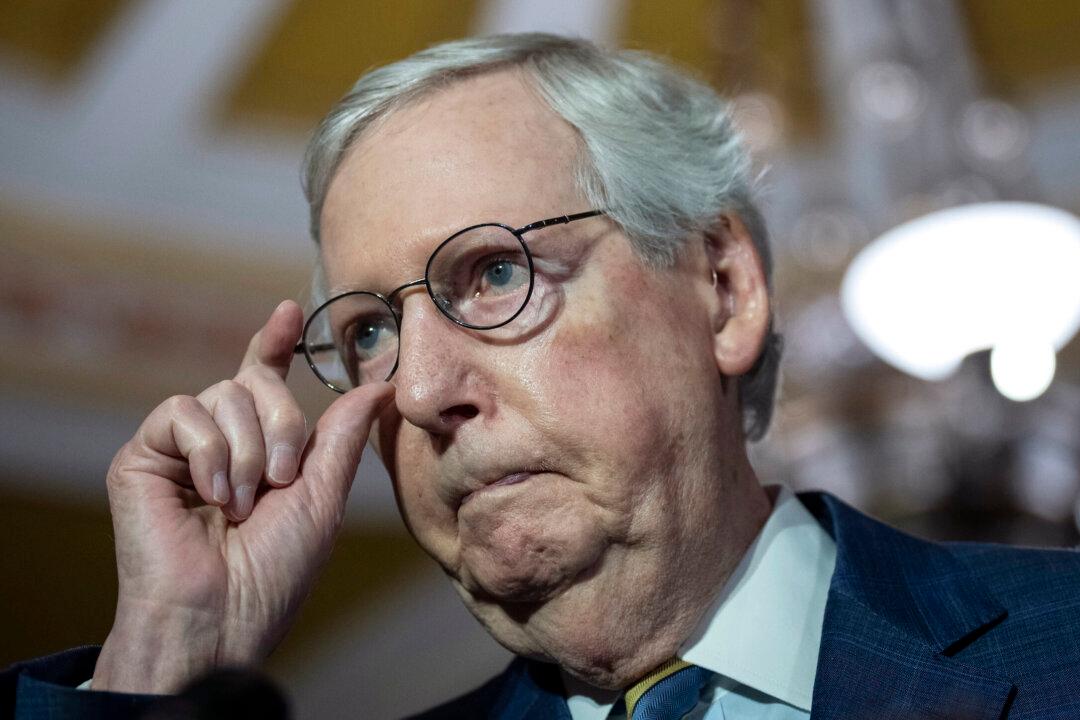Senate Minority Leader Mitch McConnell (R-Ky.) on May 10 declined to comment on the verdict by a New York jury that found former President Donald Trump civilly liable for battery and defamation in a lawsuit brought by writer E. Jean Carroll.
“That’s about presidential politics and that will all be settled in the primaries next year,” McConnell said when asked by a reporter whether the verdict was legitimate.





